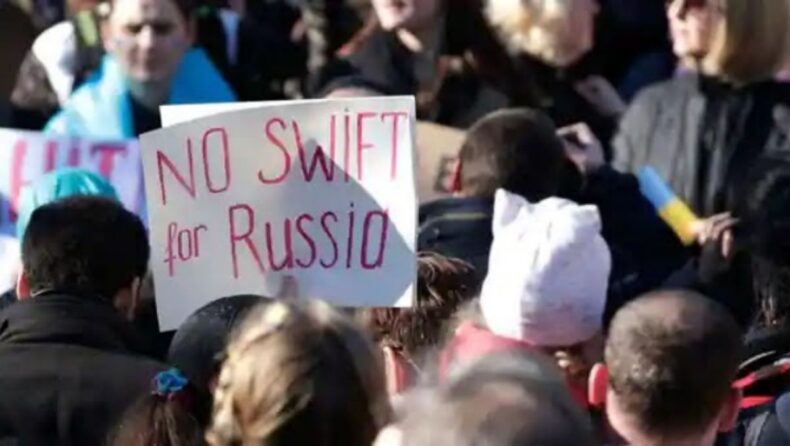The United States and European Union, and some European partners’ allies moved to block some Russian banks’ access to the SWIFT. The move is intended at isolating Russia from the international financial system in response to Russia’s invasion of Ukraine. Russia’s central bank assets are also expected to be frozen, hindering Moscow’s access to foreign reserves.
These joint sanctions are the strictest measures against Moscow since its military has moved to Ukraine and is expected to badly affect a country heavily dependent on the SWIFT platform to trade its significant natural resources, particularly its oil and gas exports. In financial terminology, cutting a nation from the SWIFT is equivalent to cutting the internet access of a country.
Earlier only one country was cut off from SWIFT – Iran. As a result, it lost a third of its foreign trade. The move against Russia is partially implemented, covering only a few Russian banks. The option to extend it as a nationwide ban is something the US and its allies are blocking as a step forward.
What is SWIFT- its stand for Society for Worldwide Interbank Financial Telecommunication.
Its Belgium based financial messaging service provider, SWIFT, doesn’t move money; it acts as an intermediary to verify transection information by providing secure financial messaging services to over 11,000 banks in over 200 countries. It oversees the central banks of eleven industrialized countries- the US, UK, Canada, France, Italy, Germany, Japan, Netherlands, Switzerland, Sweden, and Belgium.
The exclusion of Russian banks from the SWIFT platform is expected to have a massive impact on the country’s economy, and in the words of the White House, it will rely on “Telephones or Fax machines” to make payments to the country.
According to former Russian Central Bank deputy chairman Sergei Aleksashenko, the Russian currency market will be devastated on Monday. European Commission President Ursula Von derv Leyen said the decision to cripple Russia’s central bank assets would prevent the kremlin from using its war chest, referring to its Foreign Exchange Reserves (Forex).
The BBC quoted a German spokesman saying the affected banks are “all already approved by the international community, as well as other institutions, if necessary”. It seems that targeting only a few Russian banks intended to keep the option of pursuing both open while ensuring that sanctions have the maximum possible effects on Moscow, but with Russian banks to pay for their gas imports to prevent a significant impact on European Companies.
Published By: Khushboo Mehta
Edited By: Kritika Kashyap













